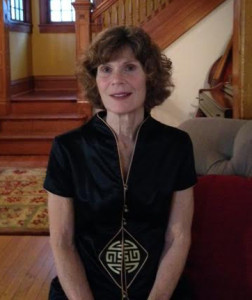I can’t remember when or where I first heard the advice that a writer should place her work in a drawer for a period of time before taking a second look at it, nor exactly how long that drawer time should be, but clearly, it’s a good idea to give yourself some time and space from any creative work when possible.
For my essay “Baby, do you pay here?” the time from note taking to finished piece was longer than thirty-five years. The experience that was the impetus for this writing took place about two years before my first son was born and he celebrated his thirty-fifth birthday this month. I wrote the original draft nearly twenty years ago and it remained in a drawer ripening until late last year. It is little wonder it did not rot, but recently, in an effort to downsize, I was purging files, shredding documents when I rediscovered this manuscript. After rereading it, I thought it might be worthy of publication.
Don’t misunderstand. I never really forgot it. The individuals who inspired the work were never far away; their faces – their voices could be easily summoned, and as I age, the lessons learned in a geriatric-psychiatric facility come into clear view. While I am reaching back to recall, the distance between sympathy and empathy is shorter and the image is sharper.
Even as young person, I recognized the life altering opportunity I had in working with the patients in the manor. These were extraordinary people in a heightened environment where the stakes were high. Voices were louder, movements were frenetic, smells were pungent, emotions were unrestrained, and the doors were locked. Confusion was the common denominator on a regular basis, but in spite of that confusion, I made critical connections with people who had a significant impact on my life.
Trained as an actor, I was no stranger to the heightened experience of the theatre and I possess a more than healthy dose of empathy. I understand what Thornton Wilder’s Emily means in his play, Our Town, when she returns from death to ask, “Do any human beings realize life while they live it? – every, every minute?” The character of the Stage Manager responds, “Saints and poets, maybe.” I am neither, but I understand the importance of capturing an experience to share in order to move an audience from one emotional place to another. I could not deny my impulse to write. Though theatre is my formal training, I am no playwright. Initially, I tried writing poems, but they were not good, so twenty years ago, in an effort to get something on paper, I wrote a thirty-plus-page account. Not long after writing it, I read it to my husband and two sons. My older son, a high school student at the time, commented that there was a lot of description and that not much happened. I think he was looking for a plot. He had a point. With that critique duly noted, I placed the document in a drawer.
I rediscovered the document six months ago. The thirty-five year old son who had offered the initial advice is now an anthropology professor whose writing is exquisite. His younger brother who also listened to the reading of the first draft is a singer-songwriter and brewer – an artist.
So, I took the piece from the drawer, read it as though it had been written by someone else, and later that day told my husband, a professor of theatre and a writer, that I thought it could be worthy of publication in some form. He read it, agreed, and helped me to think about and edit it from its original length and scope. I am grateful to him for his support and encouragement and to our sons for listening to all their mother’s stories. I am pleased that “Baby, do you pay here?” lives outside the drawer to honor the lives of the individuals who inspired me to write about them.


Having read the original piece, and being moved by it, we found this a wonderful description of the writing process and the way people and events motivate and support the creation of a finished work. We look forward to more of Ms. Watson’s writing.